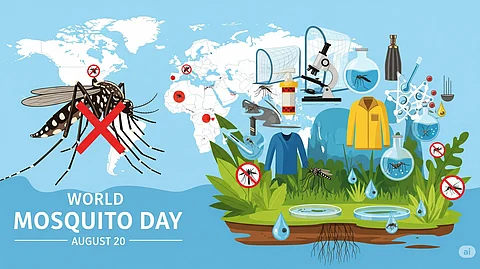Every 30 seconds, a child dies of malaria. Yet the culprit is not a ferocious beast but a tiny insect humming in the dark. On August 20, 1897, British doctor Sir Ronald Ross, while working in Secunderabad, India, made a discovery that forever changed medicine: female Anopheles mosquitoes transmit malaria between humans.
This breakthrough laid the foundation for modern tropical medicine and is the reason we observe World Mosquito Day—to remember both a historic achievement and the ongoing battle against an insect that remains the world’s deadliest animal.


